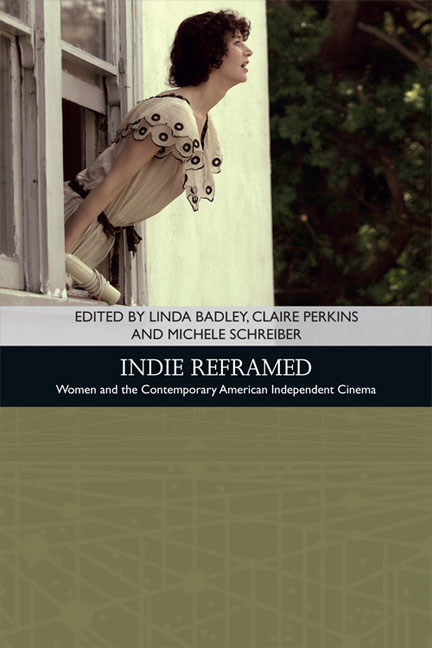15 - Mutual Muses in American Independent Film: Catherine Keener and Nicole Holofcener, Michelle Williams and Kelly Reichardt
Published online by Cambridge University Press: 10 November 2020
Summary
WORKING TOGETHER TOWARDS A DIFFERENCE ‘FOR’ OTHERS
Muses are typically thought of as women who inspire male artists. In film, the list is long: Tilda Swinton and Derek Jarman, Diane Keaton or Mia Farrow and Woody Allen, Tippi Hedren and Alfred Hitchcock, Uma Thurman and Quentin Tarantino, Jennifer Lawrence and David O. Russell and so on. But what of female directors and their stars? When asked by Variety, ‘Why is it different for women?’ Nicole Holofcener replied, tongue in cheek, ‘because there are only six of us out there. The world is sexist and racist’ (Setoodeh 2013: 85).
This essay examines two female director/actress pairs: Holofcener and Catherine Keener; Kelly Reichardt and Michelle Williams. ‘Inspiration’ does not adequately describe their relationships: they speak of their work in terms of friendship and alliance. Together they bring forward ethical perspectives often missing from action-driven movies, functioning as mutual muses. Working on the lower end of the contemporary independent sector, with budgets ranging from $8 million down to less than $300,000, their films focus on quiet, seemingly inconsequential moments. Holofcener has accordingly been associated with a ‘female-centric’, ‘feminine’ style of filmmaking by, for example, Claire Perkins (2014), who sets her films in opposition to a maledominated, Indiewood-backed ‘smart’ cinema and to a predominantly male mumblecore group.
I am less interested in a ‘difference from’ that opposes women and men than in a ‘difference for’ others that has ethical implications. To do so, as Caroline Bainbridge (2008) intriguingly also does, I draw on Luce Irigaray, in my case emphasising her more recent writings. I choose to enlist Irigaray because she is concerned with partnerships that respect difference and enact friendship, desire and love, between women and men and between women. In books and essays with titles such as To Be Two and I Love to You, Irigaray argues for leaving a space, accepting an interval, acknowledging differences, between partners, by partners and between generations. Think of ‘I love to you’ on a par with ‘I talk to you’, she says: ‘“I love to you” is a way to respect your intention and mine’ ([1993]/2000: 81). She argues that Western philosophers – among them Freud, Lacan, Marx, Merleau-Ponty, Levinas and Hegel – downplay or ignore gendered difference in favour of ‘the one’ (man) and ‘the multiple’.
- Type
- Chapter
- Information
- Indie ReframedWomen's Filmmaking and Contemporary American Independent Cinema, pp. 257 - 275Publisher: Edinburgh University PressPrint publication year: 2017



